Andreas Jedlitschka
Building AI Innovation Labs together with Companies
Mar 16, 2022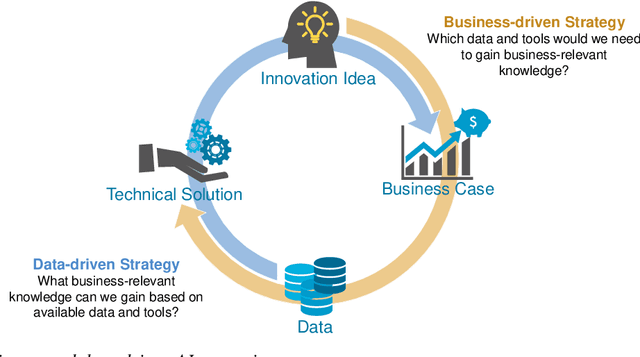
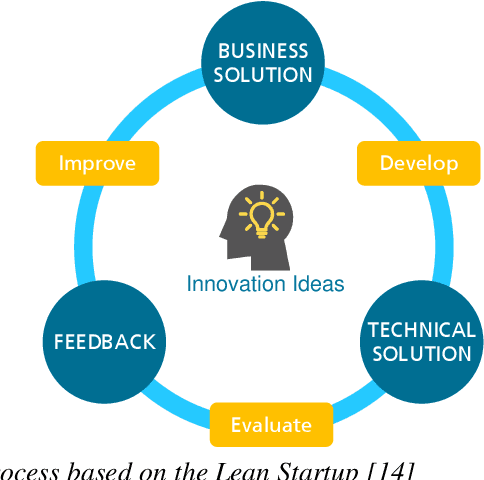
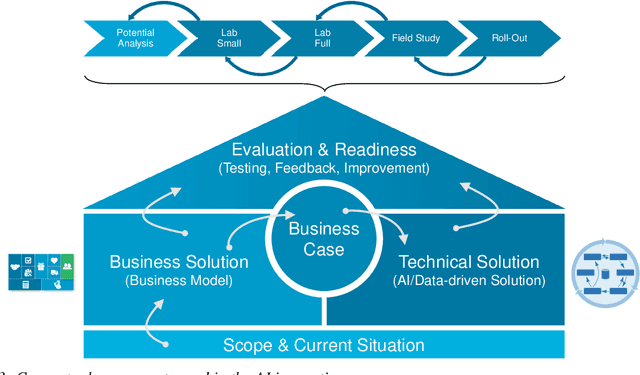
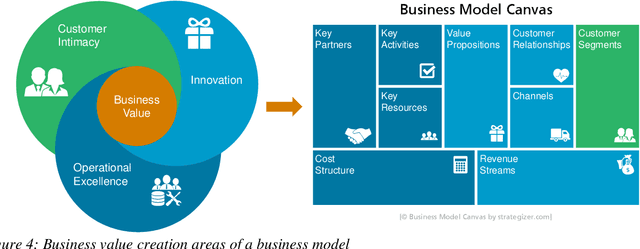
Abstract:In the future, most companies will be confronted with the topic of Artificial Intelligence (AI) and will have to decide on their strategy in this regards. Currently, a lot of companies are thinking about whether and how AI and the usage of data will impact their business model and what potential use cases could look like. One of the biggest challenges lies in coming up with innovative solution ideas with a clear business value. This requires business competencies on the one hand and technical competencies in AI and data analytics on the other hand. In this article, we present the concept of AI innovation labs and demonstrate a comprehensive framework, from coming up with the right ideas to incrementally implementing and evaluating them regarding their business value and their feasibility based on a company's capabilities. The concept is the result of nine years of working on data-driven innovations with companies from various domains. Furthermore, we share some lessons learned from its practical applications. Even though a lot of technical publications can be found in the literature regarding the development of AI models and many consultancy companies provide corresponding services for building AI innovations, we found very few publications sharing details about what an end-to-end framework could look like.
Research Directions for Developing and Operating Artificial Intelligence Models in Trustworthy Autonomous Systems
Mar 11, 2020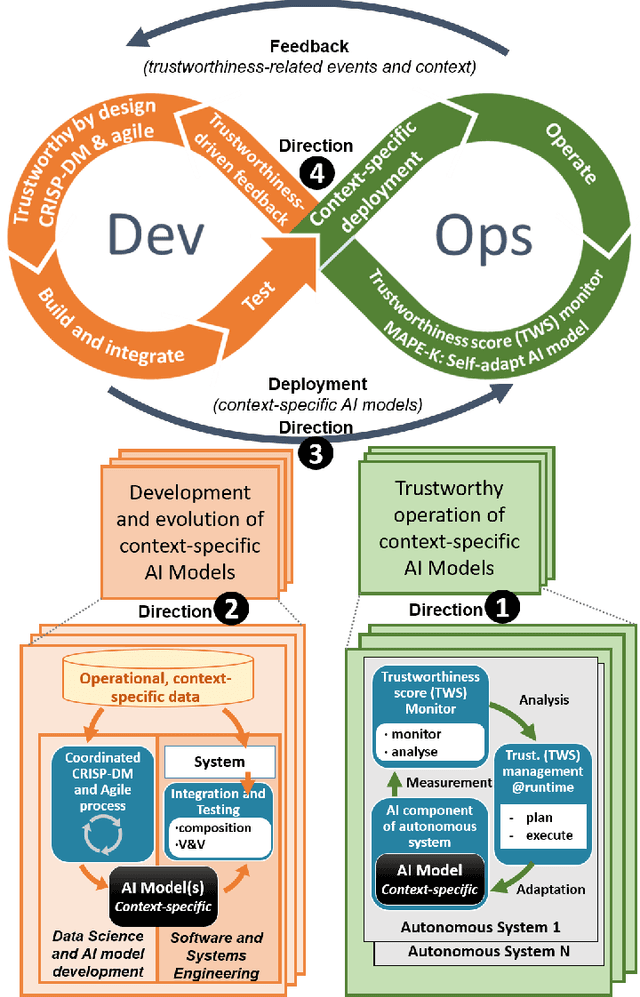
Abstract:Context: Autonomous Systems (ASs) are becoming increasingly pervasive in today's society. One reason lies in the emergence of sophisticated Artificial Intelligence (AI) solutions that boost the ability of ASs to self-adapt in increasingly complex and dynamic environments. Companies dealing with AI models in ASs face several problems, such as users' lack of trust in adverse or unknown conditions, and gaps between systems engineering and AI model development and evolution in a continuously changing operational environment. Objective: This vision paper aims to close the gap between the development and operation of trustworthy AI-based ASs by defining a process that coordinates both activities. Method: We synthesize the main challenges of AI-based ASs in industrial settings. To overcome such challenges, we propose a novel, holistic DevOps approach and reflect on the research efforts required to put it into practice. Results: The approach sets up five critical research directions: (a) a trustworthiness score to monitor operational AI-based ASs and identify self-adaptation needs in critical situations; (b) an integrated agile process for the development and continuous evolution of AI models; (c) an infrastructure for gathering key feedback required to address the trustworthiness of AI models at operation time; (d) continuous and seamless deployment of different context-specific instances of AI models in a distributed setting of ASs; and (e) a holistic and effective DevOps-based lifecycle for AI-based ASs. Conclusions: An approach supporting the continuous delivery of evolving AI models and their operation in ASs under adverse conditions would support companies in increasing users' trust in their products.
 Add to Chrome
Add to Chrome Add to Firefox
Add to Firefox Add to Edge
Add to Edge